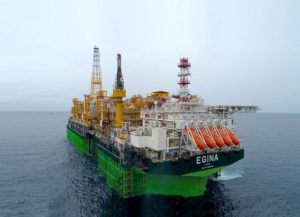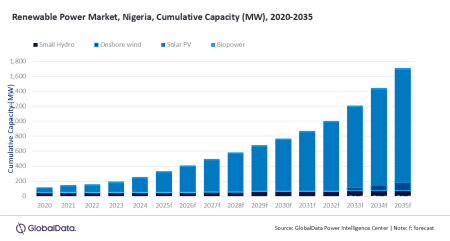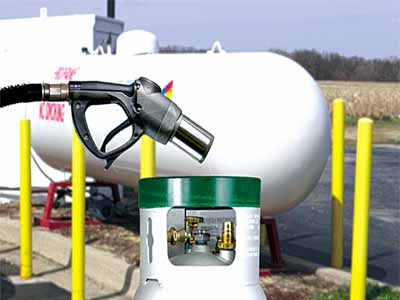
Mkpoikana Udoma
Port Harcourt — Reactions have begun to trail the over 3,000 barrels of crude oil spilt by TotalEnergies EP Nigeria Limited’s operated Egina FPSO vessel, off the country’s Atlantic coastline.
Tthe National Oil Spills Detection and Response Agency, NOSDRA recently disclosed that TotalEnergies’ Egina Floating Production Storage and Offloading vessel spilt over 3,000 barrels of crude oil into Nigeria’s Atlantic waterways on November 15th 2023.
TotalEnergies had in a confirmatory statement issued one week after the incident, described the oil leak as minor with no adverse impact on shoreline settlements, a claim which industry oil spills regulator, NOSDRA, has refuted and disagreed that the Egina oil spill was a minor one.
Director-General of NOSDRA, Dr Idris Musa, said NOSDRA’s response efforts made the difference as an aircraft and five vessels were used to apply 15,000 litres of dispersants to mop up the spilt crude oil.
Meanwhile, renowned environmentalists in the country have expressed concerns about the biosafety and toxicity of dispersants used in mopping up TotalEnergies’ oil spills from offshore waters which support fishes and marine creatures.
Dispersants are chemicals applied to oil spills to break down the oil molecules.
Speaking, the Executive Director of Health of Mother Earth Foundation, Dr Nnimmo Bassey, noted that IOCs seem to prefer the ‘remote’ location of offshore oil to be shielded from the scrutiny of regulators and host communities.
Bassey wondered why it took TotalEnergies over one week to confirm the operational mishap, if not a failed attempt to cover up, and called for transparency and more stringent regulation at offshore fields.
Bassey who holds a National Honour of Member of the Order of Federal Republic, MFR, for Environmental Activism, noted that dispersants were toxic and not safe for aquatic life which forms part of the food chain.
He said it was regrettable that after several decades of polluting their onshore fields, the IOCs were going offshore to pollute the waters, even without cleaning up the land.
“The use of dispersants is mainly to hide the impact of oil spills from view. As the name says, they disperse but do not eliminate or remove the spills. It is known that chemicals remain in the aquatic ecosystem with some staying on the seabed.
“These dispersants have an impact on the aquatic species and by extension, they also cause injury to human health.
“Considering the lax regulation of the oil field environment, this is another example of expanding the sacrifice zone the Niger Delta has been turned into. We cannot continue to sacrifice our people and environment on the altar of cash,” Bassey said.
Also, the Head of Field Operations, Environmental Rights Action, Chief Morris Alagoa, said the use of dispersants was not an alternative for cleanup or remediation, noting that dispersants were not conducive to life.
“The thing is that these chemicals called dispersants used by the oil companies to reduce the quantity of spilt crude oil or sink the crude oil are not properly identified by stakeholders or experts to enable informed conclusions.
“It is one of the ‘smart ways’ deployed by the polluters to be evasive, taking advantage of not having regulators or environmental NGOs within the particular location at the point in time.
“We in ERA have received several such complaints of inappropriate use of dispersants from community folks in Ogboinbiri, Odioama, Ikarama, etc. We have had instances where cleanup contractors apply detergents as dispersants at Okpotuwari and Ikebiri environments in the Olodiama Clan of Southern Ijaw Local Government Area of Bayelsa state.
“In most cases, dispersants either cause the crude oil coagulation and sinking or break down the molecules, leaving it still in the environment leading to environmental degradation,” Morris said.
For his part, Niger Delta Coordinator of Artisanal Fishermen Association, Rev Samuel Ayadi, said chemical dispersants used to tackle oil spills were poisonous to fishes and every other aquatic creature.
Ayadi urged the regulators to compel TotalEnergies to conduct toxicological tests to ascertain the biosafety levels in the Atlantic waters around the Niger Delta region.
“The chemicals they call dispersant are poisonous, it does not only kill fishes but when the coagulated crude sinks to the seabed where fish breeds, it wipes out the eggs as well and that is like an epidemic. The dispersants they used on the spill at Egina will cause untold hardship to fish and fishing activities in the Niger Delta for a long time starting with prolonged fish scarcity.
“Any fish that encounters the dispersant is poisoned and contaminated and poses danger to public health. The ones that survive will migrate deeper out of Nigerian territorial waters where artisan fishermen cannot reach,” Ayadi said.



